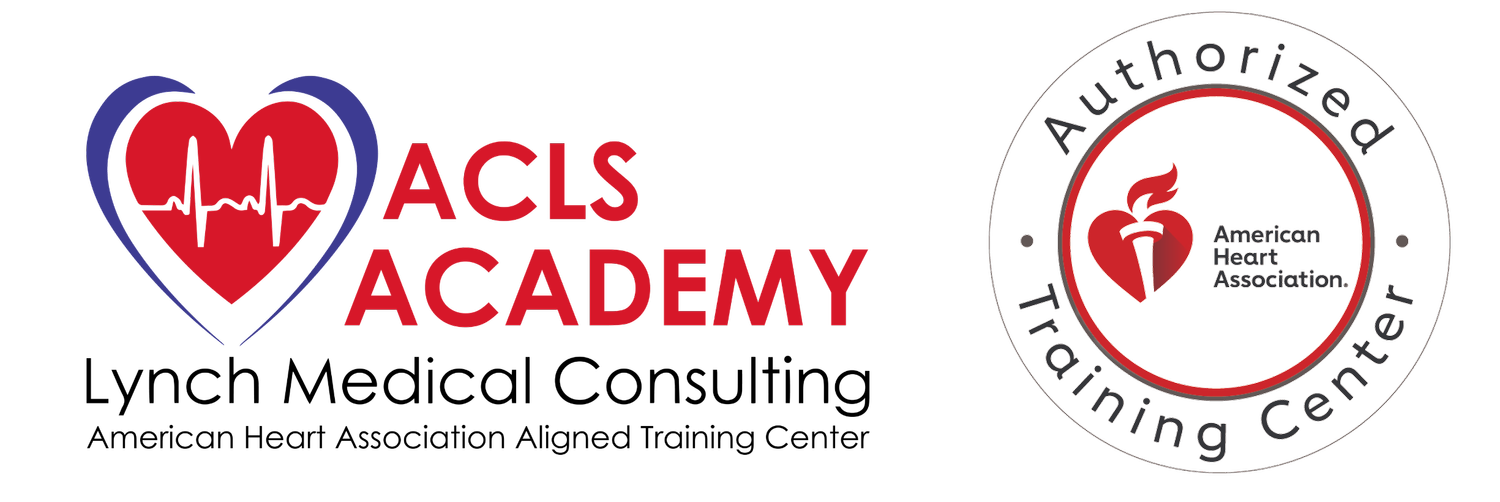HEALTHCARE CERTIFICATIONS AND THE NECESSITY OF HANDS-ON TRAINING at ACLS Academy
Today, training for nearly any job or learning for any class can take various forms. While lectures were once the norm for most of those in the healthcare profession, students and professionals can now find a plethora of ways to learn and hone their life-saving skills and advance their careers. While online and remote learning availability has exploded for all learning, in the healthcare world, hands-on training remains a priority for many who know that they will learn best if they can practice beforehand.
Healthcare education can be broadly split into two domains –the theory or knowledge and the ability to use this in a practical environment to help patients and work as a team. What differentiates health care education from other courses in higher education is that it provides a vocational qualification, producing professionals who have substantial knowledge in their field and are trained on how to apply this to provide a service. This practical application of knowledge is where hands-on learning fits into health care education.
Hands-on skills training in healthcare offers several significant benefits for healthcare professionals and the patients they serve. Here are some key advantages:
Practical Competence: Hands-on training allows healthcare professionals to develop practical competence in various medical procedures. It helps them refine their technical skills and will enable instructors to recognize and correct mistakes while still learning, dramatically reducing the chances of the same mistakes cropping up after a training course. This practical experience enhances their ability to deliver high-quality care and improves patient outcomes.
Confidence and Efficiency: Healthcare professionals gain confidence in their abilities by engaging in hands-on training. Increased confidence leads to better decision-making and quicker response times during critical situations. Practicing skills in a controlled environment under the guidance of experienced mentors helps build their self-assurance, which translates into improved efficiency and accuracy when they perform these skills in real healthcare settings.
Patient Safety: Hands-on training is essential for maintaining patient safety. It ensures that healthcare professionals are well-prepared and capable of delivering care without compromising patient well-being. By practicing skills in simulated or supervised settings, they can learn to avoid potential errors, identify and mitigate risks, and adhere to safety protocols. This focus on patient safety reduces the likelihood of adverse events and improves overall healthcare quality.
Teamwork and Communication: Many healthcare procedures require coordinated efforts among multiple professionals. Hands-on training fosters teamwork and effective communication skills, allowing healthcare providers to collaborate seamlessly and deliver coordinated care. By engaging in simulations or interactive scenarios, professionals can understand the importance of clear communication, establish efficient workflows, and enhance inter-professional collaboration, leading to better patient outcomes and satisfaction.
Adaptability and Preparedness: The healthcare field is dynamic and constantly evolving. Hands-on training equips healthcare professionals with the adaptability and preparedness to navigate new challenges and emerging technologies. By practicing skills, they become more comfortable with change, quickly learn new techniques, and adapt to evolving best practices. This agility ensures that healthcare professionals remain up-to-date and ready to provide the best possible care to their patients.
Professional Development and Lifelong Learning: Hands-on skills training encourages ongoing professional development and lifelong learning. It instills a continuous improvement mindset among healthcare professionals, motivating them to seek new knowledge, refine their skills, and stay abreast of advancements in their field. By actively engaging in hands-on training opportunities, healthcare professionals can maintain their competence, enhance their career prospects, and contribute to the overall advancement of healthcare.
ACLS Academy is an authorized American Heart Associate (AHA) Aligned Training Center with three convenient locations in Massachusetts – Quincy, Bridgewater, and Newton Center. We offer the following classes with an in-person hands-on skills training session allowing you to practice and master the proper techniques:
ADVANCED CARDIOVASCULAR LIFE SUPPORT (ACLS) – In-person or online cognitive learning with in-person hands-on skills training
BASIC LIFE SUPPORT (BLS) - In-person or online cognitive learning with in-person, hands-on skills training
EMERGENCY NURSING PEDIATRIC COURSE (ENPC) – Online cognitive learning with in-person hands-on skills training and discussions
HEARTSAVER CPR/AED/FIRST AID – In-person or online cognitive learning with in-person hands-on skills training
NEONATAL RESUSCITATION PROGRAM (NRP) - Online testing and simulations with in-person hands-on training simulations and debriefing
PEDIATRIC ADVANCED LIFE SUPPORT (PALS) – In-person or online cognitive learning with in-person hands-on skills training
STOP THE BLEED - Online or in-person interactive course with in-person hands-on skills training
TRAUMA NURSING CARE COURSE (TNCC) - Online testing and simulations with in-person skills stations and debriefing
Don’t have the time for a full in-person class? We always try to ensure ACLS Academy is here for our local community by providing a breadth of courses and flexible schedules for the life-saving training you need. Many of our classes have an option of a blended format, including the AHA online class, followed by a short skills session. See more about our blended courses in our recent blog.

